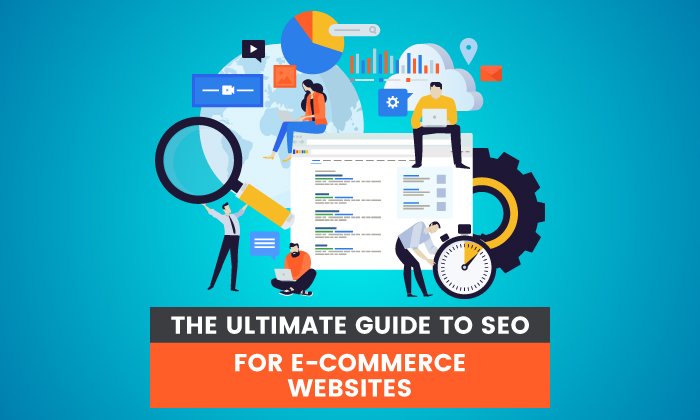
-
Table of Contents
Boosting Visibility and Sales: Elevate Your E-commerce with SEO
Introduction:
E-commerce SEO, also known as search engine optimization, is a crucial strategy for online businesses to boost their visibility and drive sales. With the ever-increasing competition in the digital marketplace, having a strong online presence is essential for success. E-commerce SEO involves optimizing various elements of an online store, such as product descriptions, meta tags, URLs, and site structure, to improve its ranking on search engine results pages. By implementing effective SEO techniques, businesses can increase their organic traffic, attract relevant customers, and ultimately drive more sales. In this article, we will explore the importance of e-commerce SEO and discuss various strategies to enhance visibility and sales in the competitive online landscape.
Optimizing Product Descriptions for Improved E-commerce SEO
E-commerce SEO: Boosting Visibility and Sales
Optimizing Product Descriptions for Improved E-commerce SEO
In the competitive world of e-commerce, having a strong online presence is crucial for success. One of the most effective ways to boost visibility and increase sales is through search engine optimization (SEO). By optimizing product descriptions, e-commerce businesses can improve their rankings on search engine results pages (SERPs) and attract more potential customers.
When it comes to optimizing product descriptions for e-commerce SEO, there are several key factors to consider. First and foremost, it is important to conduct thorough keyword research. By identifying the keywords that potential customers are using to search for products, businesses can tailor their product descriptions to match these search queries.
Including relevant keywords in product descriptions is essential for SEO. However, it is important to strike a balance between incorporating keywords and maintaining readability. Keyword stuffing, or overusing keywords in an unnatural way, can actually harm SEO rankings. Instead, businesses should focus on creating informative and engaging product descriptions that naturally incorporate relevant keywords.
Another important aspect of optimizing product descriptions for e-commerce SEO is ensuring that they are unique. Duplicate content can negatively impact SEO rankings, as search engines prioritize original and valuable content. Therefore, businesses should avoid using manufacturer-provided descriptions and instead create their own unique descriptions for each product.
In addition to uniqueness, product descriptions should also be detailed and informative. Providing comprehensive information about the product can help potential customers make informed purchasing decisions. This includes highlighting key features, specifications, and benefits of the product. By providing valuable information, businesses can not only improve their SEO rankings but also enhance the overall user experience.
Furthermore, incorporating persuasive language and calls to action (CTAs) in product descriptions can also boost sales. By using persuasive language, businesses can create a sense of urgency and encourage potential customers to make a purchase. Including CTAs such as “Buy Now” or “Limited Stock Available” can further motivate customers to take action.
Optimizing product descriptions for e-commerce SEO also involves optimizing meta tags. Meta tags, including meta titles and meta descriptions, are HTML elements that provide information about a webpage to search engines. By including relevant keywords in meta tags, businesses can improve their chances of appearing in relevant search results.
Additionally, businesses should ensure that their product descriptions are mobile-friendly. With the increasing use of smartphones for online shopping, having a responsive website that provides a seamless user experience across different devices is crucial. Optimizing product descriptions for mobile devices can help businesses reach a wider audience and increase sales.
In conclusion, optimizing product descriptions for e-commerce SEO is a vital step in boosting visibility and sales. By conducting thorough keyword research, creating unique and informative descriptions, incorporating persuasive language and CTAs, optimizing meta tags, and ensuring mobile-friendliness, businesses can improve their SEO rankings and attract more potential customers. With the right strategies in place, e-commerce businesses can thrive in the competitive online marketplace.
Utilizing Keywords and Metadata to Enhance E-commerce SEO
E-commerce SEO: Boosting Visibility and Sales
Utilizing Keywords and Metadata to Enhance E-commerce SEO
In the competitive world of e-commerce, having a strong online presence is crucial for success. One of the most effective ways to boost visibility and increase sales is through search engine optimization (SEO). By optimizing your e-commerce website, you can improve your rankings on search engine results pages (SERPs) and attract more organic traffic. One key aspect of e-commerce SEO is the strategic use of keywords and metadata.
Keywords are the foundation of SEO. They are the words and phrases that users type into search engines when looking for products or services. By identifying and targeting the right keywords, you can ensure that your e-commerce website appears in relevant search results. Conducting thorough keyword research is essential to understand what terms your target audience is using and how competitive those keywords are.
When selecting keywords for your e-commerce website, it’s important to strike a balance between relevance and competition. Highly relevant keywords may have high competition, making it difficult to rank for them. On the other hand, less competitive keywords may not attract as much traffic. It’s crucial to find a sweet spot where you can target keywords that are both relevant to your products and services and have a reasonable level of competition.
Once you have identified your target keywords, it’s time to optimize your e-commerce website accordingly. Start by incorporating these keywords into your website’s content, including product descriptions, category pages, and blog posts. However, it’s important to use keywords naturally and avoid keyword stuffing, as search engines penalize websites that engage in this practice.
In addition to incorporating keywords into your content, optimizing your metadata is also crucial for e-commerce SEO. Metadata refers to the information that appears in search engine results, such as the title tag and meta description. These elements provide a brief summary of your webpage’s content and play a significant role in attracting users to click on your website.
When optimizing your metadata, make sure to include your target keywords in the title tag and meta description. This helps search engines understand the relevance of your webpage to a user’s search query. However, it’s important to keep your title tags concise and compelling, as they are limited to a certain number of characters. Similarly, your meta description should be informative and enticing, encouraging users to click through to your website.
Another important aspect of e-commerce SEO is optimizing your product images. While search engines cannot directly interpret images, they rely on alt text to understand what an image represents. By including descriptive alt text that includes your target keywords, you can improve the visibility of your product images in image search results.
In conclusion, utilizing keywords and metadata is essential for enhancing e-commerce SEO. By conducting thorough keyword research and incorporating relevant keywords into your website’s content, you can improve your rankings on SERPs and attract more organic traffic. Additionally, optimizing your metadata, including title tags and meta descriptions, helps entice users to click on your website. Don’t forget to optimize your product images with descriptive alt text to improve their visibility in image search results. By implementing these strategies, you can boost your e-commerce website’s visibility and ultimately increase sales.
Implementing Effective Link Building Strategies for E-commerce SEO
Implementing Effective Link Building Strategies for E-commerce SEO
In the world of e-commerce, having a strong online presence is crucial for success. With millions of websites competing for attention, it can be challenging to stand out from the crowd. This is where search engine optimization (SEO) comes into play. By optimizing your website for search engines, you can improve your visibility and drive more organic traffic to your online store. One of the most important aspects of SEO is link building, which involves acquiring high-quality backlinks from other websites. In this article, we will explore some effective link building strategies for e-commerce SEO.
First and foremost, it is essential to understand the importance of quality over quantity when it comes to link building. While it may be tempting to acquire as many backlinks as possible, search engines are becoming increasingly sophisticated in detecting spammy and low-quality links. Instead, focus on building a strong network of authoritative and relevant websites that can vouch for the credibility of your online store.
One effective strategy for link building is reaching out to industry influencers and bloggers. These individuals have a significant following and can provide valuable exposure for your e-commerce website. By offering them unique and engaging content, you can increase the likelihood of them linking back to your site. This not only improves your SEO but also drives targeted traffic from their audience, potentially leading to increased sales.
Another strategy is to leverage the power of social media. With billions of active users, platforms like Facebook, Instagram, and Twitter offer immense opportunities for link building. By sharing compelling content and engaging with your audience, you can encourage them to share your links, thereby increasing your website’s visibility. Additionally, social media platforms often have high domain authority, meaning that links from these sites carry significant weight in search engine rankings.
Collaborating with other e-commerce websites can also be a fruitful link building strategy. By forming partnerships or participating in affiliate programs, you can exchange links with complementary businesses. For example, if you sell fitness apparel, partnering with a fitness equipment retailer can lead to mutual benefits. Not only will you gain valuable backlinks, but you may also attract customers who are interested in both fitness apparel and equipment.
Furthermore, creating and promoting high-quality content is essential for successful link building. By publishing informative blog posts, product guides, or industry reports, you can establish yourself as an authority in your niche. This not only attracts organic backlinks from other websites but also encourages visitors to share your content on social media. Additionally, regularly updating your content and optimizing it for relevant keywords can improve your search engine rankings, further boosting your visibility and sales.
Lastly, monitoring and analyzing your link building efforts is crucial for ongoing success. By using tools like Google Analytics, you can track the performance of your backlinks and identify any areas for improvement. This data can help you refine your link building strategies and focus on acquiring links from websites that generate the most traffic and conversions.
In conclusion, implementing effective link building strategies is essential for boosting visibility and sales in e-commerce SEO. By focusing on quality over quantity, reaching out to influencers, leveraging social media, collaborating with other e-commerce websites, creating high-quality content, and monitoring your efforts, you can improve your website’s search engine rankings and attract more organic traffic. Remember, link building is an ongoing process, so continuously refining and adapting your strategies is key to long-term success in the competitive world of e-commerce.In conclusion, implementing effective E-commerce SEO strategies is crucial for boosting visibility and driving sales. By optimizing website content, improving site structure, and utilizing relevant keywords, businesses can increase their online presence and attract more organic traffic. Additionally, optimizing product pages, implementing user-friendly navigation, and utilizing social media platforms can further enhance visibility and ultimately lead to higher conversion rates and increased sales. Overall, investing in E-commerce SEO is essential for businesses looking to succeed in the competitive online marketplace.










